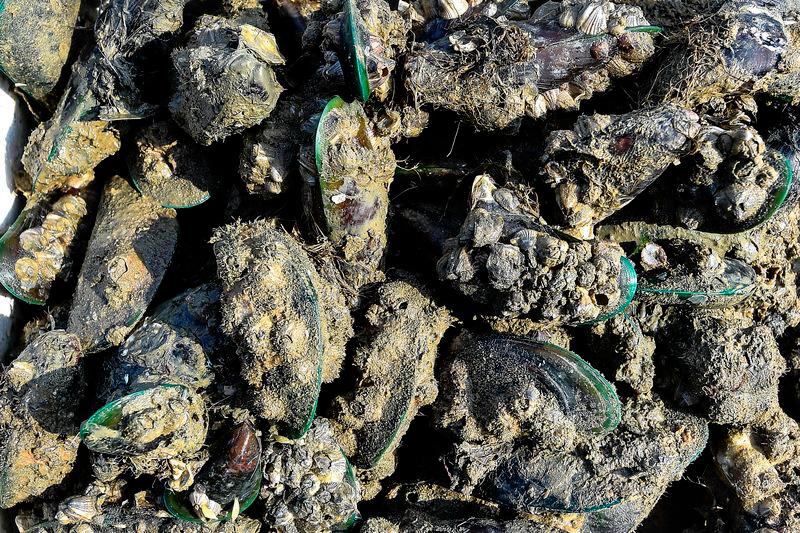JASIN: More than 30 mussel farmers and producers around the waters of Kuala Sebatu are appealing to relevant agencies, including the state government, to take immediate action to assist them after the enforcement of a ban on the sale and consumption of bivalves since last April.
One mussel farmer, Hamzah Abu Bakar, 42, said that the mussel producers in the area had suffered almost 100 per cent losses since then.
He said that since April, he had lost his main source of income as he could no longer market mussels, which had been his primary livelihood.
“I haven’t been able to harvest or sell mussels and have had to stop farming them since the ban was enforced.
“This situation has forced me to return to my previous job of fishing, which yields unpredictable results. If the state government and the Fisheries Department do not help, the situation will worsen,“ he told reporters at the Kuala Sebatu Fishermen’s Jetty in Merlimau today.
Meanwhile, the Jasin Area Fishermen’s Association board chairman Mohd Sah Hashim, also expressed concern about the declining income of its members who farmed mussels, as they had suffered losses amounting to hundreds of thousands, including clams and mussel seeds.
He said that in the Kuala Sebatu area alone, there were 33 farms operating, either under the association or privately, with a capacity of 500 ropes per farm.
“In the past, we sold around 100 kg of mussels a week, and if we had less, we sourced from local fishermen.
“However, in the past few months, we have had to do other work and can only earn around RM800 to RM1,000,“ he said.
He added that the problem, caused by harmful algae detected in the waters of Port Dickson, Negeri Sembilan, also led to many farmed mussels dying.
“Since we can’t harvest them, the mussels die when they reach maturity, causing significant losses for farmers who previously sold them for RM7 to RM8 per kg,“ he said.
Meanwhile, the State Fisheries Department director, Saufi Affandi Talib, told reporters that his department was still monitoring and conducting weekly sampling.
“This is because the levels of the harmful plankton species Prorocentrum Alexandrium in the waters are still high, and all bivalves, such as mussels, clams and cockles, are unsafe to eat.
“Therefore, the ban on harvesting, distributing, selling and consuming these species remains in effect,“ he said when contacted.









